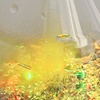Diabetes - Diabetes mellitus
Our AIRVI OET and AIRVI IQ therapy devices provide lasting help here.
In Switzerland, it is estimated that almost 500,000 people suffer from diabetes, 40,000 of whom are type 1 diabetics. In Germany, it is estimated that more than 5 million people suffer from diabetes.
Can the cause of the diagnosis diabetes mellitus be traced back to a large number of false diagnoses?
With the basic knowledge of the regulatory processes in the body (sympathetic = tension and parasympathetic = relaxation), the diagnosis of diabetes mellitus with elevated blood sugar levels appears to have a completely different cause than has been proven and recognised to date. But judge for yourself?
What is diabetes - in simple terms?
- an increased blood sugar value at the time of the sugar measurement!
In most cases, the following symptoms/parameters can also be determined:
- increased blood pressure
- increased heart rate
- increased adrenaline level in the blood (= stress hormone) if one would measure it
- other parameters that can be detected in case of stress or long-term stress
"Sugar" = glucose (dextrose) is the most important fuel for our cells to produce the vital energy for the cells together with oxygen in the mitochondria (energy power plants of the cells). Glucose must therefore be present in the blood in order to be able to enter the cells "as fuel".
If you are actively exercising, a blood glucose measurement would reveal that your blood glucose levels are too "high" - which of course makes sense in sports as a biological reaction of the body. Your blood pressure and the level of the stress hormone adrenaline in the blood would also be increased. Because during sport more energy is needed for the muscle cells and therefore more sugar is released into the blood so that it can reach the muscle cells. Thus a meaningful biological reaction to changed conditions = increased energy need/demand. The same happens when you have a fierce quarrel with your partner, you get the termination of your employment contract and many more stress situations.
Our body reacts since times in the sense of the survival strategy with "danger and stress" with:
- elevated blood sugar levels
- hypertension
- accelerated heart rate
- accelerated breathing frequency
- increased release of stress hormones e.g. adrenaline
- including physiologically and biologically detectable changes
If you are under tension for 20 hours a day for 2 weeks (physical and/or psychological stress), you would have increased sugar levels, blood pressure and stress hormone levels, etc. during these 20 hours. These are sensible biological reactions to your current "stress situation"!
Does it make sense during these 2 weeks to measure a blood sugar value during the phases of tension - or to carry out a glucosetolerence test? With the understanding of the basic regulation (sympathetic nervous system = tension) and parasympathetic nervous system = relaxation) it is probably not!
How was diabetes diagnosed in you? A random diagnosis during a routine examination, or after an accident or during a very tense phase with family stress or conflicts?
Treatment / therapy of diabetes
- Bring the vegetative nervous system back into balance. Stress and tension should alternate in their dominance - please take a look at the therapy possibilities with AIRVI SET and AIRVI IQ.
- Sufficient exercise through walks or sporting activities. Through exercise and sport "stress" the body prepared for fight and flight can effectively reduce the energy provided.
- Avoiding permanent stress situations in the private, family and/or professional environment or providing sufficient relaxation to create a balance.
- Balanced nutrition (lots of fresh fruit and vegetables).
- Better 3 large meals than 5 or 7 small meals (so that the pancreas does not have to work constantly and can recover better in between).
- In the area of weight loss / fat loss / training, it is of enormous importance that at least 4 hours of rest lie between meals. Only about 4 hours after a meal is the blood sugar level back to normal and the body can then effectively burn fat during training. If you eat in between and the insulin level in the blood rises, the fat burning is not very effective !!! Small biscuits or sweets (contain sugar) also count as a small meal, since the sugar level also rises here and insulin must be produced).
- Supportive or anabolic treatment for the pancreas.
